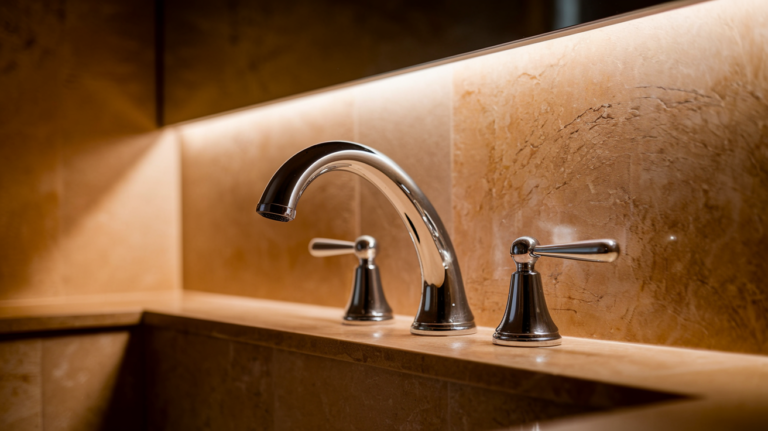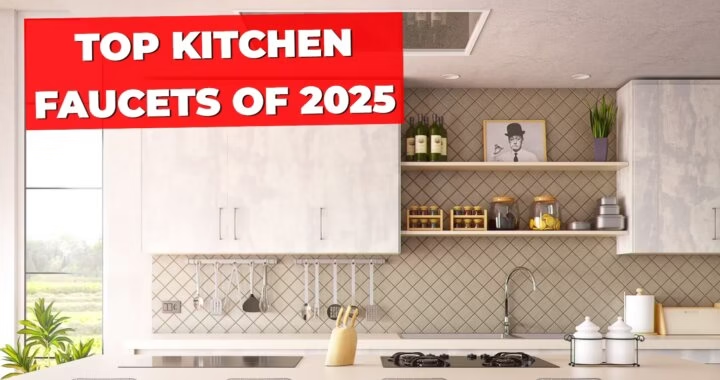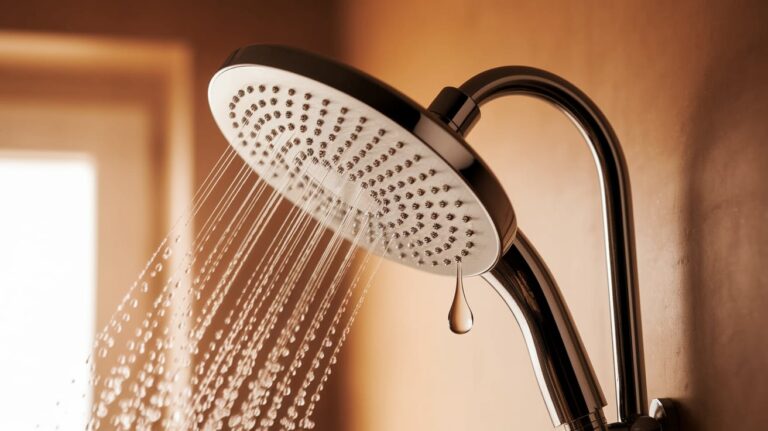Top 5 Ways to Prevent Plumbing Clogs
Plumbing clogs are every homeowner’s nightmare!
Imagine walking into your kitchen or bathroom to find water backing up, strange odors lingering, and the potential for expensive repairs looming. The good news?
Most plumbing clogs are entirely preventable with the right knowledge and simple maintenance techniques.
Professional plumbers estimate that up to 75% of drain blockages could be avoided with proper care and attention. Whether you’re a new homeowner or have been managing a household for years, this guide will help you keep your pipes clear, your water flowing smoothly, and your wallet happy.
1. Implement Smart Drain Protection Strategies
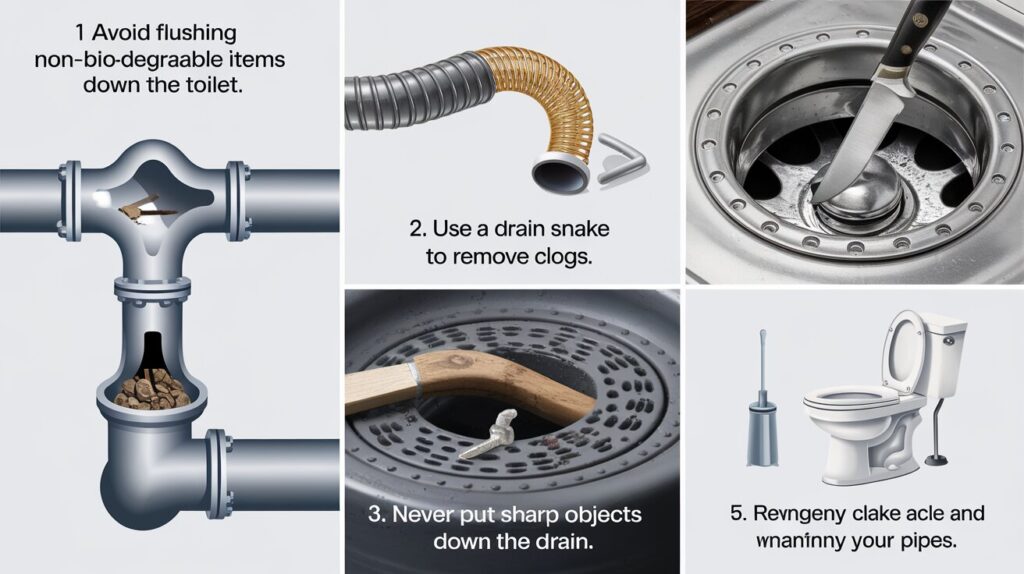
Drain guards are like bouncers for your pipes – they stop unwanted guests (aka debris) from causing trouble:
- Kitchen Sink Saviors: Install fine-mesh strainers to catch food particles
- Shower and Bathtub Protection: Use specialized strainers designed to trap hair and soap scum
- Types of Drain Guards:
- Mesh strainers
- Perforated covers
- Expandable hair catchers
Pro Tip: Clean your drain guards weekly to maintain maximum effectiveness and prevent buildup.
2. Be Mindful of What Goes Down Your Drains
Your drains are not a garbage disposal. Many household items can wreak havoc on your plumbing system:
Kitchen No-Nos:
- Cooking grease and oil
- Coffee grounds
- Eggshells
- Pasta and rice (which expand in water)
- Fibrous vegetables like celery
Bathroom Danger Zone:
- Wet wipes (even “flushable” ones)
- Cotton balls and Q-tips
- Dental floss
- Feminine hygiene products
Witty Advice: “Treat your toilet like it’s a member of the Royal Family. Only the essentials get past the guard!”
3. Regular Maintenance and Natural Cleaning Techniques
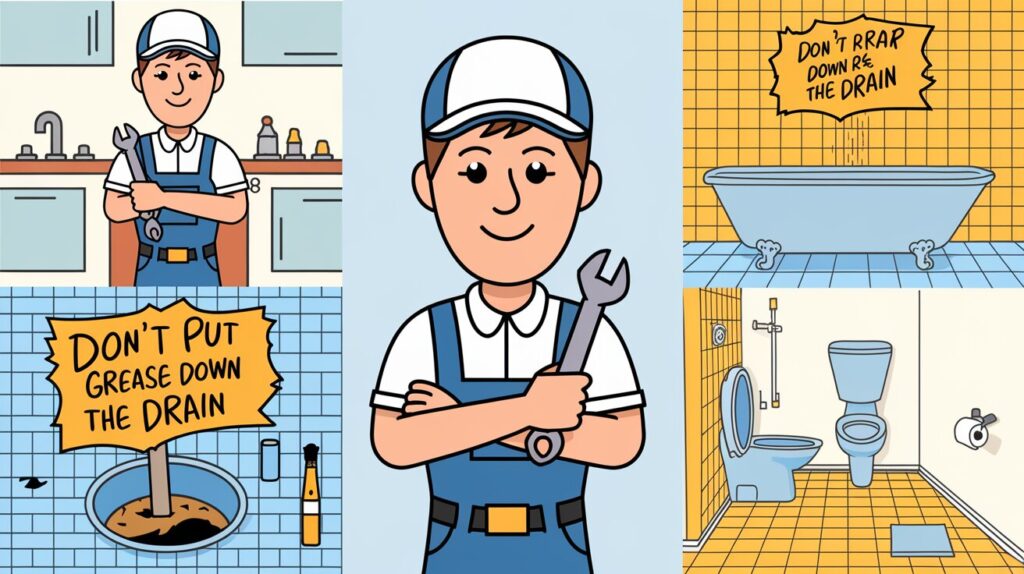
Consistent maintenance can prevent major clogs before they start:
Weekly Maintenance:
- Pour boiling water down drains to dissolve minor buildup
- Clean drain guards thoroughly
Monthly Deep Clean:
- Pour 1/2 cup baking soda down the drain
- Follow with 1/2 cup white vinegar
- Wait 10-15 minutes
- Flush with hot water
This natural solution helps break down minor clogs without harsh chemicals.
4. Professional Drain Inspections and Infrastructure Upgrades
While DIY maintenance is crucial, professional insights can save you money:
- Schedule annual plumbing inspections
- Use camera technology to detect potential issues
- Consider upgrades like:
- Whole-house water filtration systems
- Modern, wider drain pipes
- Advanced fixtures with better water flow
Cost-Saving Insight: The price of an annual inspection is minimal compared to emergency plumbing repairs.
5. Specific Area Maintenance Tips
Kitchen Sink Care:
- Never pour grease down the drain
- Collect grease in a disposable container
- If grease accidentally goes down, immediately flush with hot water and dish soap
Shower Drain Protection:
- Install hair-catching drain covers
- Clean cover after each shower
- Remove and dispose of trapped hair regularly
Handy Table for Quick Reference:
| Method | Tools Needed | Frequency |
|---|---|---|
| Use Drain Guards | Drain guards | Daily |
| Be Mindful of What You Flush | Awareness | Always |
| Regularly Clean Your Drains | Baking soda, vinegar | Monthly |
| Avoid Grease and Fat Buildup | Grease container | Always |
| Install a Drain Cover in Showers | Drain cover | After each use |
Conclusion: Your Pipes, Your Responsibility
Preventing plumbing clogs isn’t just about avoiding inconvenience—it’s about protecting your home’s most crucial infrastructure. By implementing these five strategic approaches, you’ll save money on potential repairs and extend the life of your plumbing system.
Call to Action: Ready to take control of your home’s plumbing health? Implement these strategies today and schedule a professional inspection this year!
Disclaimer: While these tips are generally effective, every home is unique. When in doubt, consult a professional plumber.
Useful Links:
- How to Clean Your Drains with Baking Soda and Vinegar
- Why You Should Never Pour Grease Down the Drain
FAQ
How can I prevent clogs and slow drains in my household plumbing?
To prevent clogs and slow drains, follow these tips:
Use drain strainers to catch hair and debris.
Avoid pouring grease and coffee grounds down the sink.
Run hot water down the drain regularly.
Use a baking soda and vinegar mix monthly to clear buildup.
These simple practices can help keep your plumbing running smoothly! 🚿



